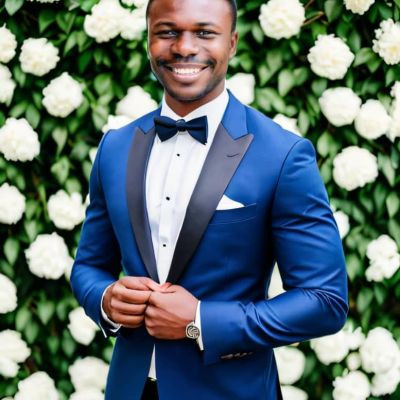Philip Emeagwali For Kids | African American Inventors and their Inventions
Philip Emeagwali Lecture 180918-2
73 “How to Become a Genius” –Philip Emeagwali
As a supercomputer scientist,
the most important lesson
that I learned
was that you cannot become
the highest supercomputer wizard
without foremost,
applying “sitting power,”
or sitting the longest
in front of supercomputers
or sitting longer than
any supercomputer scientist
ever sat in front of supercomputers.
The fastest supercomputer
in the world
occupies the space of a soccer field
and requires building
a new multi-storey facility
to house the millions upon millions
of commodity processors
that will enable it to execute
the fastest computations.
The supercomputer is to me
what the violin is to the violinist.
A friend who is a musician
told me that a violinist
must mostly practice
and not mostly read her music.
The violinist must go beyond
only reading her music
on her airplane flight
to perform in Carnegie Hall
of New York City.
The violinist must apply her
“sitting power”
to get to Carnegie Hall.
This important lesson
—of hard work, dedication, discipline, consistency, and practice—applies to everything we do in life.
You must play or think or dream soccer every day
to play soccer
in the next world cup.
You must write every day
to write the next bestselling novel.
You must write at least
a million words
before you can call yourself a writer.
I wrote a million words
of supercomputer codes
before the newspapers
called Philip Emeagwali
the “African supercomputer wizard.”
A student writing a school report
on “Philip Emeagwali”
asked me:
“What course do I study
to become a supercomputer wizard,
like you?”
“That’s like asking
what book to read
to become a violin virtuoso,”
I replied.
A passenger carrying her violin
asked a New York City taxi driver:
“How do you get to Carnegie Hall?”
“Practice, practice, practice,”
was the reply the New York City taxi driver gave the violinist.
I learned that
the answers to the biggest questions
don’t come easy.
74 School Reports on Philip Emeagwali
When I visit the public libraries
in the United States,
I often ran into elementary school students
or middle school students
or high school students
doing research for their school reports.
Some school reports were titled:
“Famous Scientists
and Their Discoveries.”
Or
“Great Inventors
and Their Inventions.”
Since my invention
of the massively parallel processing supercomputer
that occurred
on the Fourth of July 1989
and that made the news headlines,
thereafter, many school reports
had the title:
“The Contributions of Philip Emeagwali
to the Development of the Computer.”
I encourage children
to continue their education
by visiting their schools
and sharing my struggles with them.
I encourage children to study science
by replying their emails
and returning some of their
telephone calls.
However, most children assume that
I am dead and, for that reason,
do not write me.
Children assume that I am dead because
most famous scientists—like Archimedes, Galileo, and Isaac Newton—died centuries ago
and only exist in old films
and textbooks.
It matters that my contribution
to the development of the fastest supercomputers
is studied in American schools.
It matters because
eventually, students of today
will be the teachers of tomorrow.
Eventually, teachers of yesterday
will be companions
to the 17th century Isaac Newton.
So, I understood
how important it will be
for young black African Americans
to see another black African American
making a contribution
to the development of the supercomputer.
I discovered that
it was not just for young black African Americans
to see me in a leading role
but for old white European American scientists
to get accustomed to
a young black African American
as their scientific role model.
I am not surprised that most students
writing a school report on
“Philip Emeagwali”
assumed at the beginning
that I died centuries ago.
One student that wrote a school report
on Philip Emeagwali
was surprised to see me playing soccer
with her father.
And it resonates
when a kid sees the inventor
in her school report
playing soccer with her father.
I was in the public library
in Baltimore, Maryland
when I saw a 12-year-old
and observed that he was writing a school report
on “Philip Emeagwali.”
To encourage him in his education
and study of science,
I put my hand on his shoulder
and said:
“Please allow me to introduce myself,
I’m Philip Emeagwali.”
He reacted as if I was a ghost.
“I thought you’re dead,”
the 12-year-old asked in disbelief.
A year later, I saw him again.
“What did your teacher say
about your school report on me.”
I asked.
My teacher said:
“Anthony, you don’t need to lie
that Philip Emeagwali
put his hand on your shoulder.”























